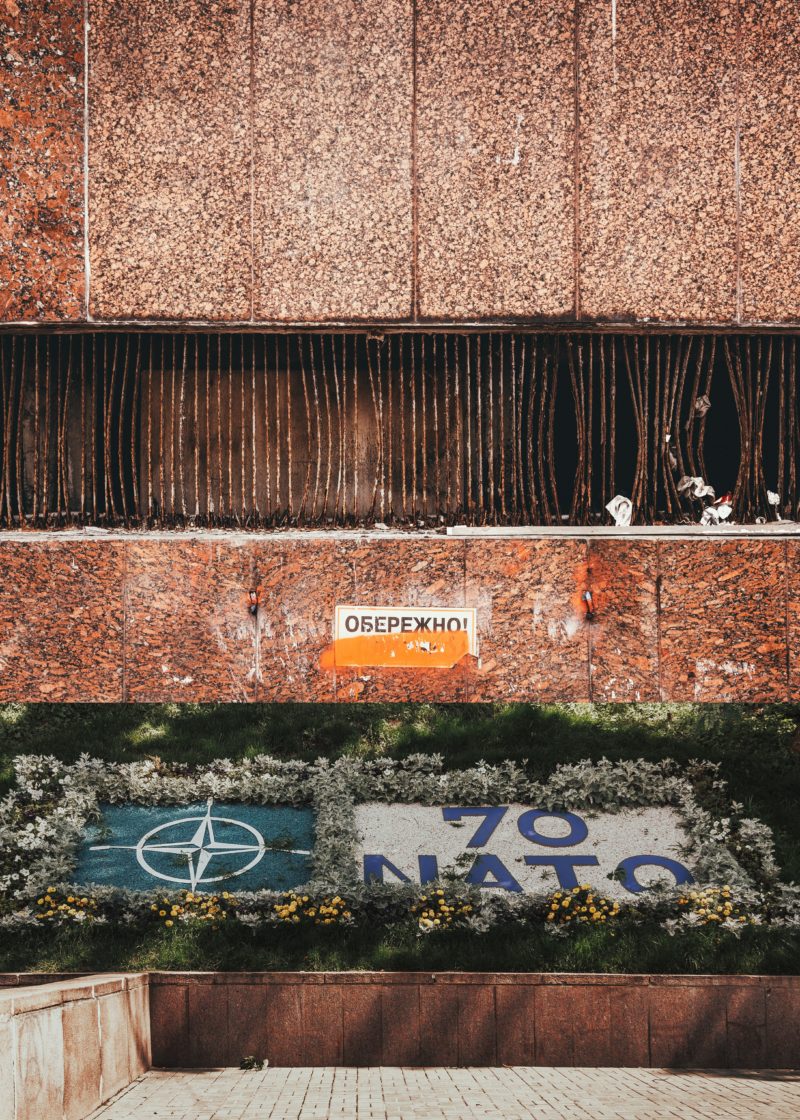The NATO Summit held in Brussels on the 14th of June 2021, brought the return of a pre-Trump world with the US playing a more proactive role. This was shown in their affirmation of previous commitments such as a focus on regional security and Russia’s containment.
I was intrigued by the event because it reminded me that prior to the COVID-19 pandemic, these high-profile summits would take place on regular basis, but over the past year they have been forced to move online. As a Ukrainian living in Brussels, I was curious to hear what would be said about the current situation in Ukraine, even though I did not expect any dramatic policy changes to emerge from this summit.
President Volodymyr Zelensky was elected in May 2019 but his tenure he has been marred by several scandals. He has faced accusations of incompetency, corruption and populism. Under his leadership, it seems the Ukraine has lost its appetite to demand greater sanctions on Russia whilst also shying away from proclaiming itself as pro-EU or pro-NATO. After many failed attempts to tackle both corruption and the pandemic, Ukraine has made little progress in reaffirming its Western objectives to its NATO and EU partners.
What the NATO Summit did make clear is that, even though the Ukraine is not progressing at the pace that was originally hoped, it is still more than capable of co-operating with NATO. This absolutely leaves the door open for Ukraine to join NATO in the future, on the basis that they meet the necessary requirements for membership. This sentiment was strengthened by US President, Joe Biden. In his statement, he made clear that Ukraine could become a member of NATO, but only if it managed its domestic affairs first, such as implementing the necessary reforms and overcoming the corruption accusations.
Post-Summit NATO communique highlighted that both Ukraine and Georgia, two countries strongly affected by Russian aggression, can strive for full NATO membership even with an unresolved conflict on their land. This situation is causing huge tension between the nations. Ending the war with Russia may be the only way of thawing these relations. Unfortunately, this task appears impossible without Russian compliance. However, easing this tension is not a requirement to join NATO, not officially at least. What is more important is the ability to reform domestically and follow up on what NATO requires essential for membership. Georgia has been doing a better job than Ukraine, so far, but the fact that NATO mentioned both countries highlights that there is an equal hope for these two.
Now, in Ukraine’s case, what could be considered a success from the NATO Summit? Well, primarily, the fact that it was mentioned alongside Georgia, and the faraway promises, made in 2008, were reaffirmed, even though the environment has changed completely. Furthermore, it is important to note is that this has happened despite the ongoing conflict and confrontation with Russia. The communique was published before the meeting between Joe Biden and Vladimir Putin, and it could be perceived as a warning signal to the latter.
After the summit, a Kremlin spokesperson, Dmitriy Peskob, released a statement saying that Ukraine’s NATO membership was a red line issue for Russia, and that the Kremlin was concerned about the communique released by NATO leadership. This is another warning signal, however, this time it is from Russia to NATO.
At the time of writing, Ukraine has no guarantees of accession to NATO. While a lot depends on its domestic performance, there remains a continuous fluctuation between the country and its Western allies, especially when it comes to security. NATO leadership has given different messages to the Ukrainian government throughout these years. Often because of the challenging situation in Ukraine, but also, because of divisions within NATO itself.
It will be interesting to see whether anyone has a clear vision for Ukraine’s future. Whether it is NATO, the EU, or Ukrainians themselves. With its fluctuating relationship with its Western allies, Ukraine has managed to step on a lot of domestic red flags fueled by Russian propaganda. Yet, the support for joining NATO is strong, and has reached most of the country’s population.
If Ukraine fails in its reforms, its membership toward NATO will be postponed for the foreseeable future. Now, would that be a red flag for the country? Yes, but not only that, unreformed and regressive Ukraine is bad news not only for its citizens, but also for NATO members and all of their Western neighbours whose security and development are affected by Ukraine’s own security and development. Therefore, a red flag for Ukraine is the red flag for the West.
Ukraine’s potential for joining NATO is certainly a red flag for Russia. However, from the West’s perspective, anything that upsets the Kremlin, is a major victory for Ukraine. If the country can demonstrate significant progress with its reforms, Ukraine’s victories with NATO could be bigger. So far, it remains a rather passive observer of the big decisions made by the Alliance’s leadership.
In the light of the past summit, it was important to note the gains Ukraine made from the event, even without being directly responsible for them. Now, will the Alliance extend its support to encourage Ukraine further? And what will the ambivalent Ukrainian leadership do?
An article by Anna Romandash, Ukraine, Young Professionals Advisor



